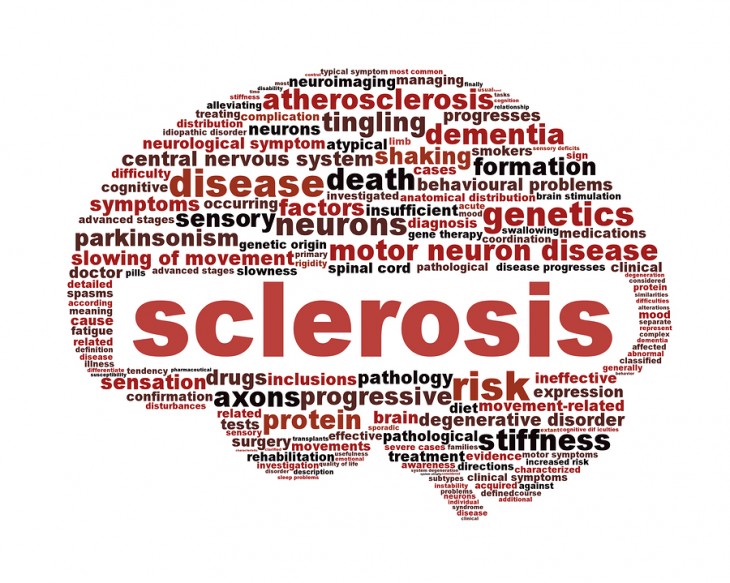Cannabis for Multiple Sclerosis: How can it help to relieve the symptoms of MS?
Since March 2018, MS was added to the list of qualifying conditions for medical cannabis in a total of 18 states
Multiple Sclerosis, also known as MS, affects approximately 2.5 million people worldwide, according to the Multiple Sclerosis Foundation. The debilitating condition can leave a person struggling to perform daily tasks without feeling discomfort.
When a patient has exhausted alternative treatment options, such as an injection-type treatment like Interferon beta-1a, they may switch to something safer and more natural, such as medical cannabis for MS.
What are the symptoms of MS?
A person who is diagnosed with MS will usually experience a number of the following symptoms:
- Colors appear dull or less vibrant
- Eye pain (particularly when moving it)
- Blurred vision
- Numbness and tingling
- Bladder and bowel problems
- Lack of coordination
- Emotional instability
- Dizziness
- Muscle spasms
- Speech problems
- Thinking problems
- Unusual sensations
- Trouble walking
What is the cannabis plant?
In an attempt to relieve the aforementioned symptoms of MS, patients may turn to opioid medications. The truth is that opiates can do quite the opposite since they are addictive and can prove fatal if misused.
Factually, 64,000 Americans died from opioid overdoses in 2016 alone, according to the National Institute on Drug Abuse (NIH).
The good news is that cannabis could provide similar relief, minus the addiction.
Comprising hundreds of cannabinoids, such as Δ9-tetrahydrocannabinol (THC) and cannabidiol (CBD), the cannabis plant has been the focal point of medical research over the last few years.
Consumers need not get “high” to feel medicated, because CBD is the non-psychoactive cannabis compound of the two previously mentioned. It can even counteract the unwanted side-effects of mind-altering THC. Non-intoxicating, CBD has anti-inflammatory, analgesic, and antipsychotic properties.
More PwMS are using or considering cannabis for MS treatment
A rising number of people with multiple sclerosis (PwMS) are consuming cannabis or, at the very least, considering using the plant to deal with a broad scope of symptoms.
Studies conducted in recent times have shone a light on cannabis acceptance among PwMS.
One particular study showed that 20-60 percent of PwMS were using cannabis to treat the symptoms of their condition at the time of the study, whereas 50-90 percent were open to considering it, depending on the legalities and level of available scientific evidence.
Research shows that cannabinoids can alleviate MS symptoms
Numerous studies have suggested that strains of cannabis comprising a fairly equal CBD: THC ratio may help alleviate pain and muscle spasticity in MS patients.
Alternative studies tell us that cannabis may aid with gastrointestinal problems caused by MS, such as digestion and constipation.
The benefits of cannabis for MS was confirmed in GeneFo’s 2018 Guide to Clinical Effects of Medical Cannabis.
GeneFo is a company that helps patients, doctors and anyone who is interested in learning about the cannabis plant to understand it on a deeper level.
Cannabis boasts anti-inflammatory properties that, according to some studies, may reduce optic nerve inflammation, thus improving vision.
Medical cannabis for MS is not yet approved in all states
Although the beneficial evidence of cannabis for MS is stacking up, GeneFo is worried about the restrictions that are currently set on medical cannabis in some states.
Cannabis-friendly states require people with qualifying conditions to obtain a doctor or healthcare physician’s recommendation, prior to visiting a dispensary.
People who reside in states that are not cannabis-friendly could be left with no option but to use opiates. GeneFo hopes that their guide will help MS patients breeze through the legal and health systems when trying to obtain medicinal-grade cannabis treatments.
Since March 2018, MS was added to the list of qualifying conditions for medical cannabis in a total of 18 states. The condition is not yet listed in 18 other states. However, some MS symptoms are listed, including pain, muscle spasms, and nausea.
Medical cannabis for MS may be safe and effective
A study on the safety and efficacy of cannabis for MS was carried out in February.
It showed that 93.7 percent of PwMS experienced a reduction in chronic pain after just six months of treatment.
An additional 60 percent of those who participated in the study said they experienced a better quality of life after using cannabis for MS.
Famous faces are supporting the use of medicinal cannabis, too.
American TV personality and owner of LenitivLabs, Montel Williams, spoke about medical cannabis legalization at the 5th annual Cannabis World Congress and Business Exposition, which took place from May 30-June 2 in New York City.
Williams has been diagnosed with MS and is a long-standing cannabis advocate.








